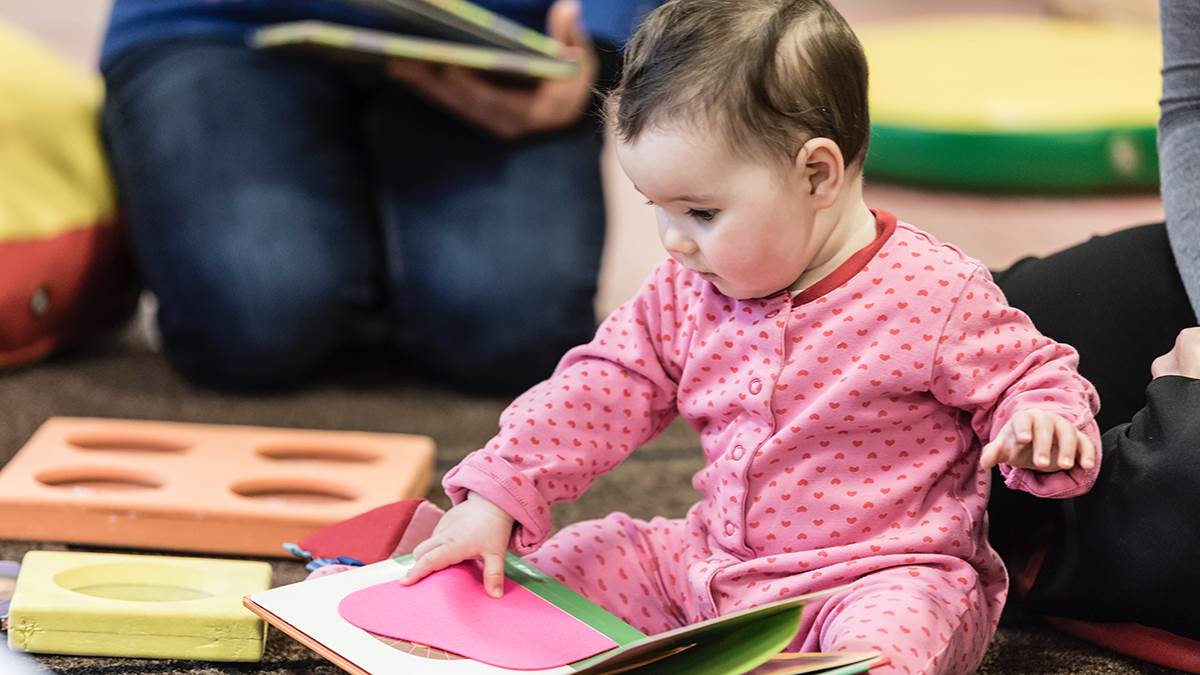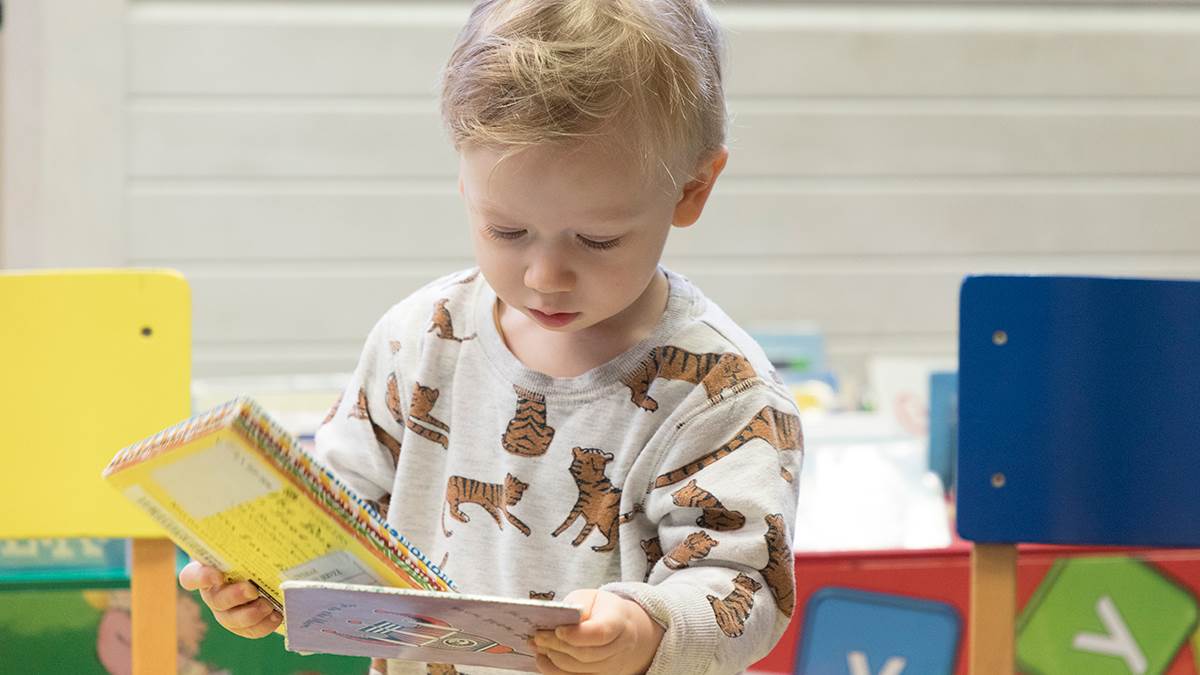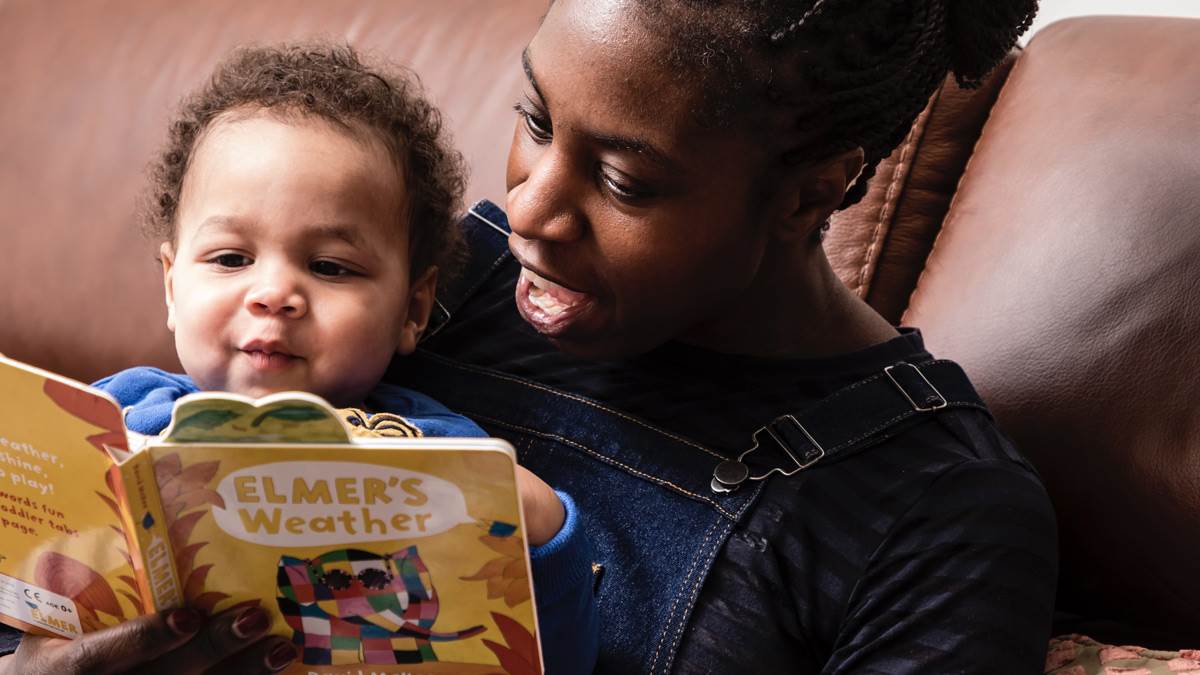'It doesn’t have to be sitting there with an encyclopaedia. Even small, fun books help develop that love of books in children'
Published on: 25 May 2023
New research from BookTrust explores why almost a quarter of children from low-income backgrounds are missing out on the benefits of reading.
Here's how practitioners and families feel about the importance of reading in a child's early years – and why more needs to be done to support families to read together.

New research from BookTrust reveals that almost a quarter of parents and carers from low-income backgrounds (23%) are not sharing books with their children before their first birthday. Despite this, the majority (95%) see reading as an important thing to do.
Where families are regularly reading and sharing stories together, this peaks when children are between two and four years old. After the age of four, families' daily reading habits start to decline drastically – and this decline continues throughout their childhood.
Understandably, busy schedules and the daily pressures of life are a huge factor, with 20% of parents and carers saying they don't read with their child due to lack of time.
What's more, 28% say they don't find reading with their child easy – highlighting the critical need for more support for families when it comes to choosing books and making reading regularly together feel more manageable.
Despite these challenges, 95% of parents told BookTrust they see reading as important for their child.
Keith Cullen, Family Support Worker for Splash Surestart Brownlow Lurgan, Northern Ireland, who took part in BookTrust's Early Years pilot, says:
'There are a lot of our families who wouldn't be in a position to prioritise buying books. Where we are doing a lot of signposting for referrals for food banks and other help, buying books is well down on the list of their priorities.
'For little ones, it is important to start [early] with books, to develop their language and their knowledge. It's really about getting them reading from an early age.

'With the books we get from BookTrust, some parents are so surprised to see that babies actually will interact with books. We have baby cafes, for example, and we see the babies swiping the book to get the page turned.
'I often get messages from the parents who have left Surestart saying that they are still reading the books. People realise that their child loves hearing stories and no matter what the parent's reading ability is, they can still talk through the books.
'It doesn't have to be sitting there with an encyclopaedia. Even small, fun books, help develop that love of books for children.'
Liz, a parent from Shropshire who received Bookstart Baby, says:
'I feel like reading is helping my children develop who they are. My son had the most challenges with reading at first, so it was really important that we found things for him to read that interested him. When he was younger, he was majorly interested in anything to do with vehicles, so we found him loads of books about tractors.
'Things have become so much easier for him. He's been able to get loads more out of school because it's not such a chore for him to read the things in front of him. Now, when he reads, he's not doing it as a task that has been set by us or his teacher. He's doing it because he enjoys doing it.'

Liz adds: 'It's just really nice when you're able to take five or ten minutes out just to have that time where you're all sat together with books.
'Aside from the academic benefits of reading, I think the way it benefits relationships between kids and parents is really key. I think for people who are really busy working or who are busy because they've got other children in the house, it's difficult.
'By involving my baby girl in reading with her older siblings from a young age, hopefully she feels like it's just a normal part of the day. Then when she goes off to nursery or to school, having a book in front of her is not something that will feel alien to her.'
Louise, a librarian from North Somerset who delivers BookTrust Storytime, says:
'I see how the outcomes for children who enjoy reading are different. They're more engaged at school. They're more engaged in jobs. Their emotional intelligence is stronger. The outcomes for kids who read are just startlingly different. Kids who genuinely enjoy reading and want to go out and explore and find the next book.
'Anything we can do to make reading fun, to make it less of a chore or a tick box exercise – something children know they'll be measured on at school – is so important. Anything that encourages kids to think about books as fun, as escapism. It's just so good for everything.'
Children's reading habits in the early years: Download the research briefing
Topics: 0-1 year, 2-3 years, 4-5 years, Case studies, Early learning, Features, Testimonials





